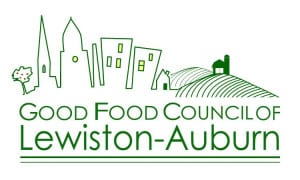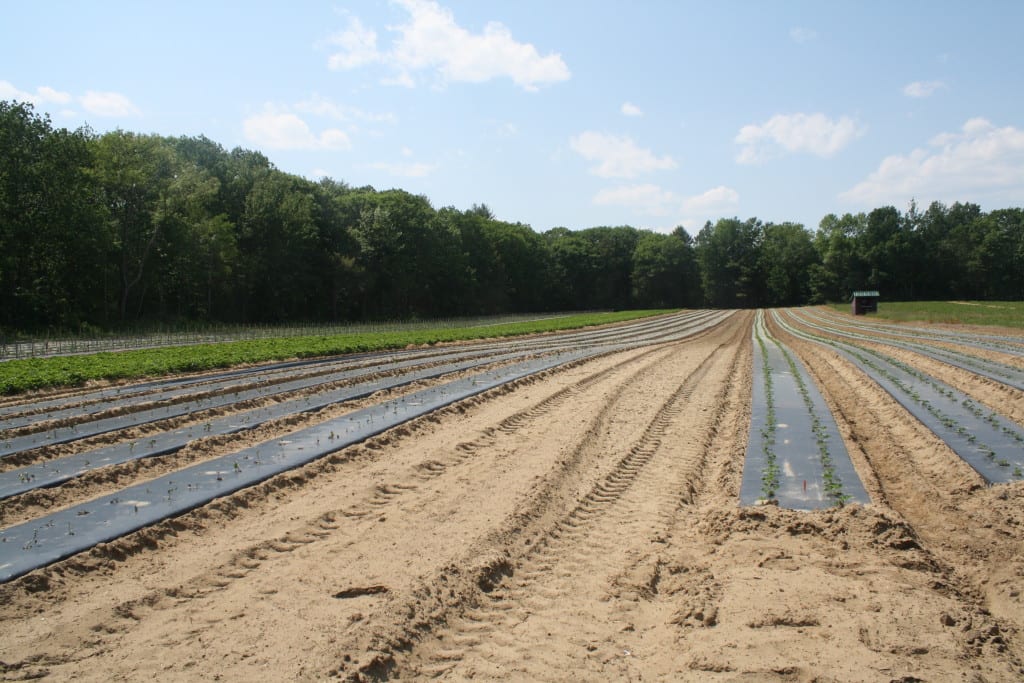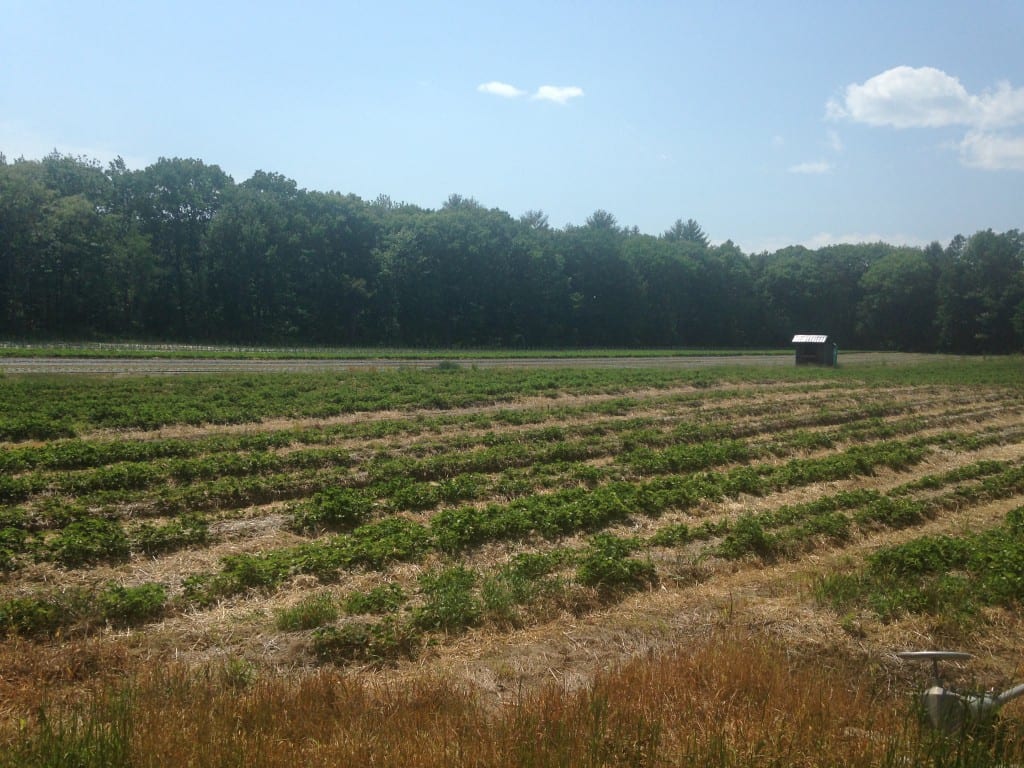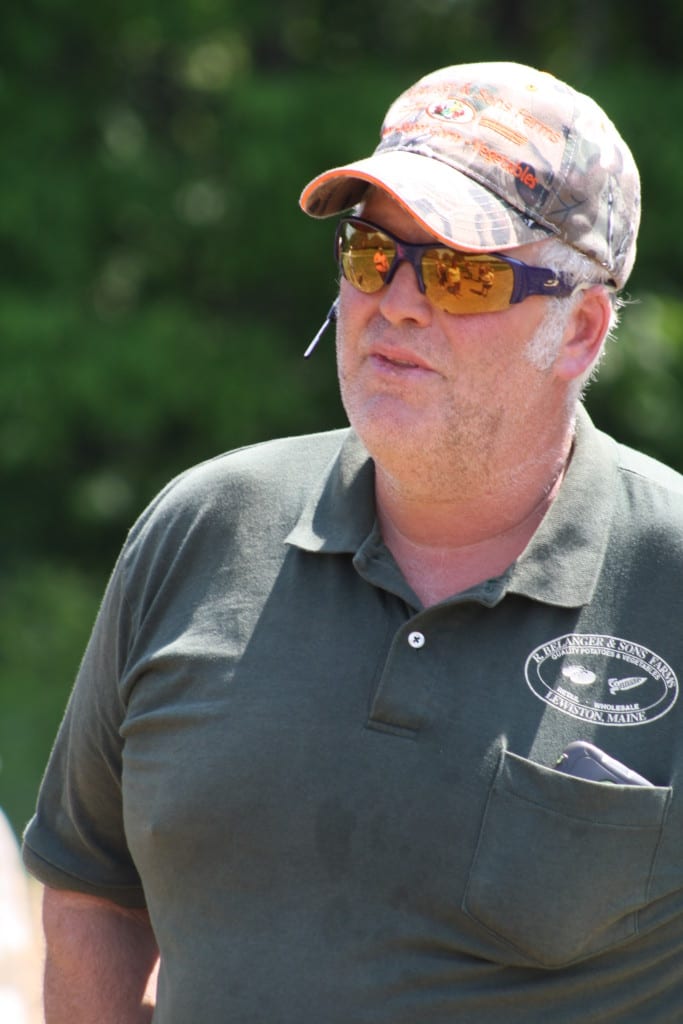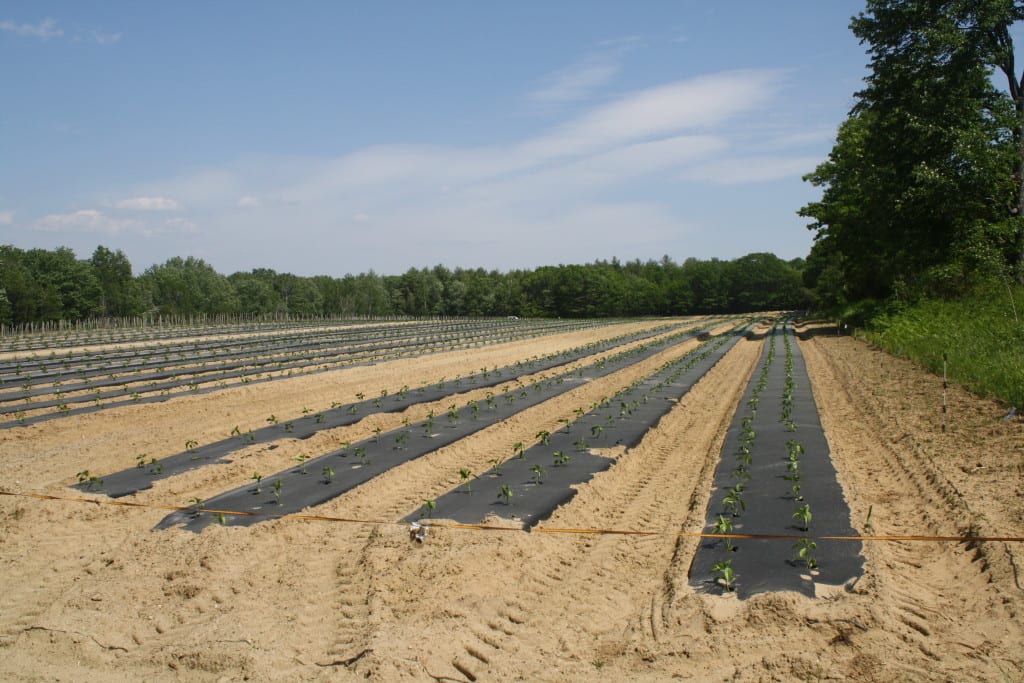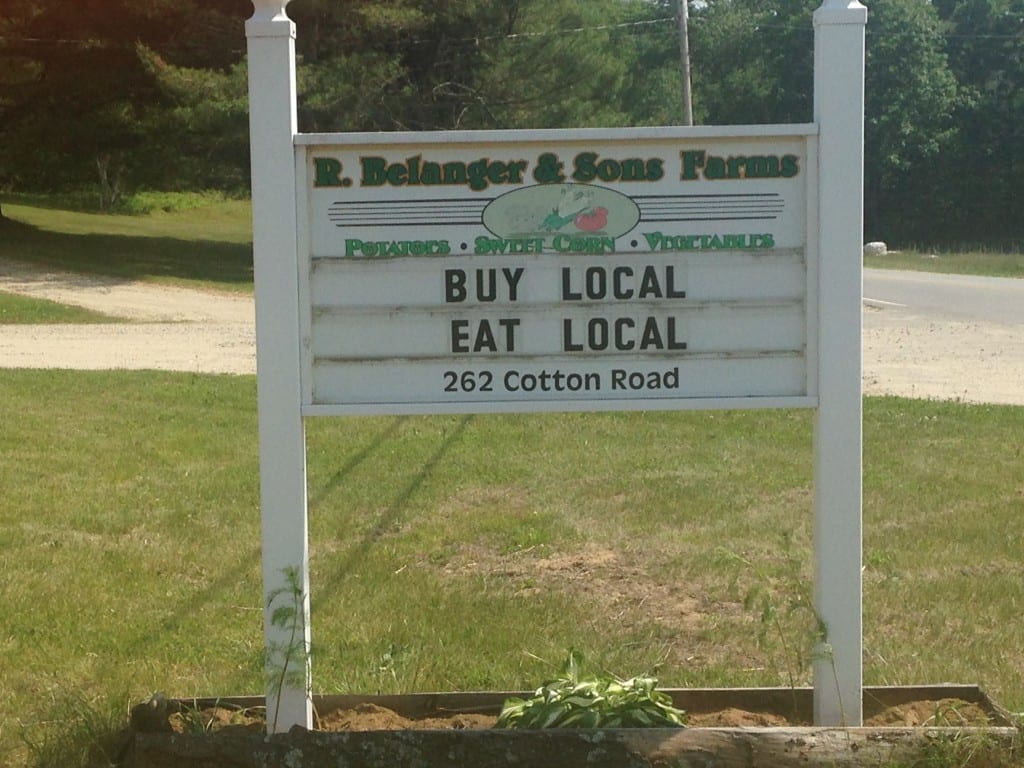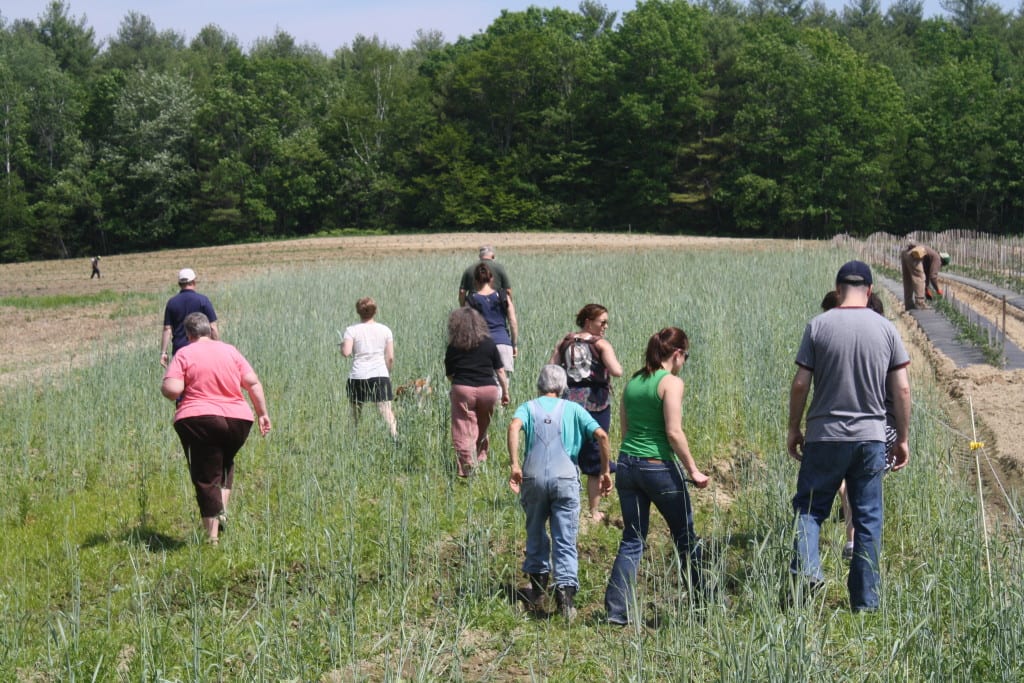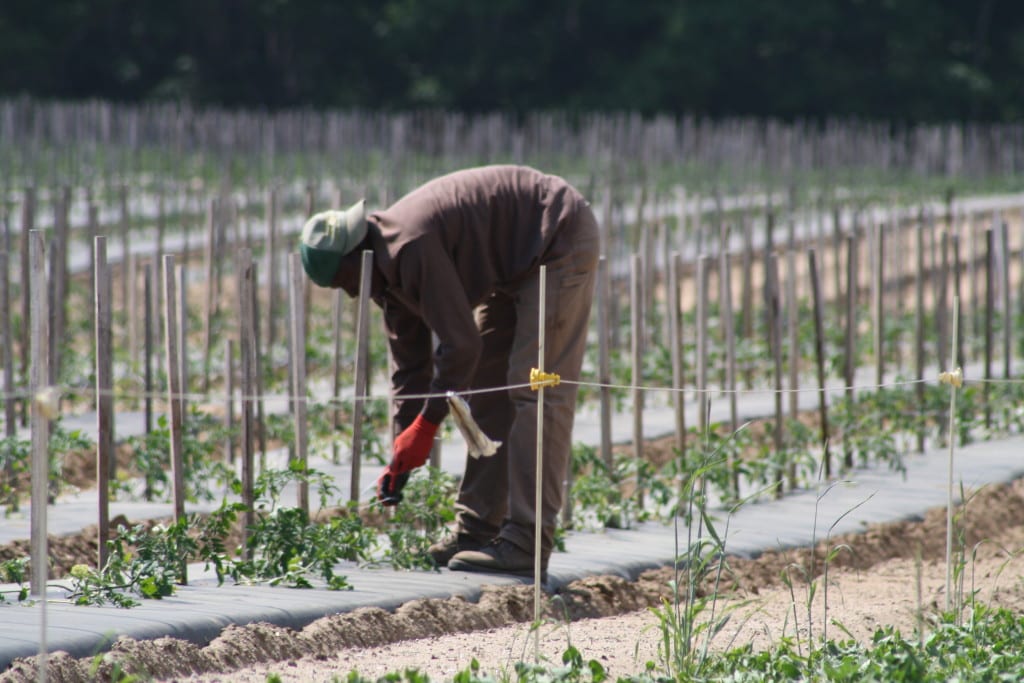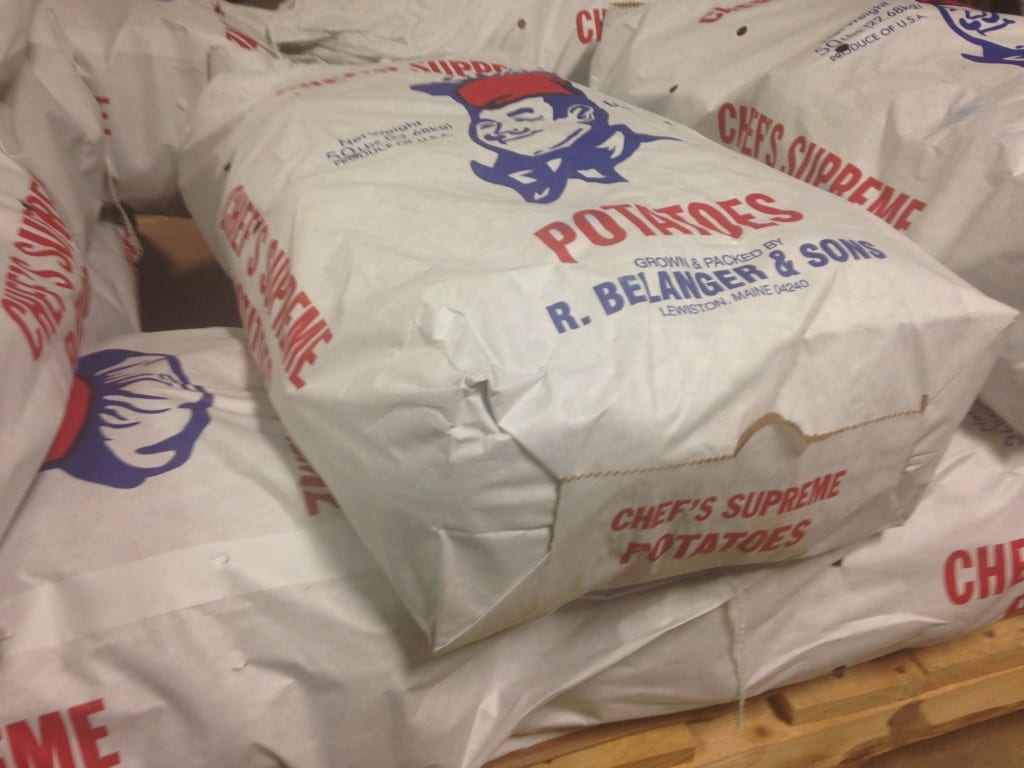The Good Food Council of L-A used our June meeting to learn more about fellow council member Rick Belanger’s farm in Lewiston.
Located on Cotton Road in Lewiston, R. Belanger and Son’s farm has an impressive 500 acres of mixed vegetables under cultivation. This makes R. Belanger and Son’s one of the largest food producers in Androscoggin County. The farm is USDA GAP certified and sells their products to Hannaford, other local vegetable stands, as well as area restaurants and colleges. We were grateful to spend time learning about the challenges and joys of being a major food producer in Maine.
We wanted to share some of our tour with you:
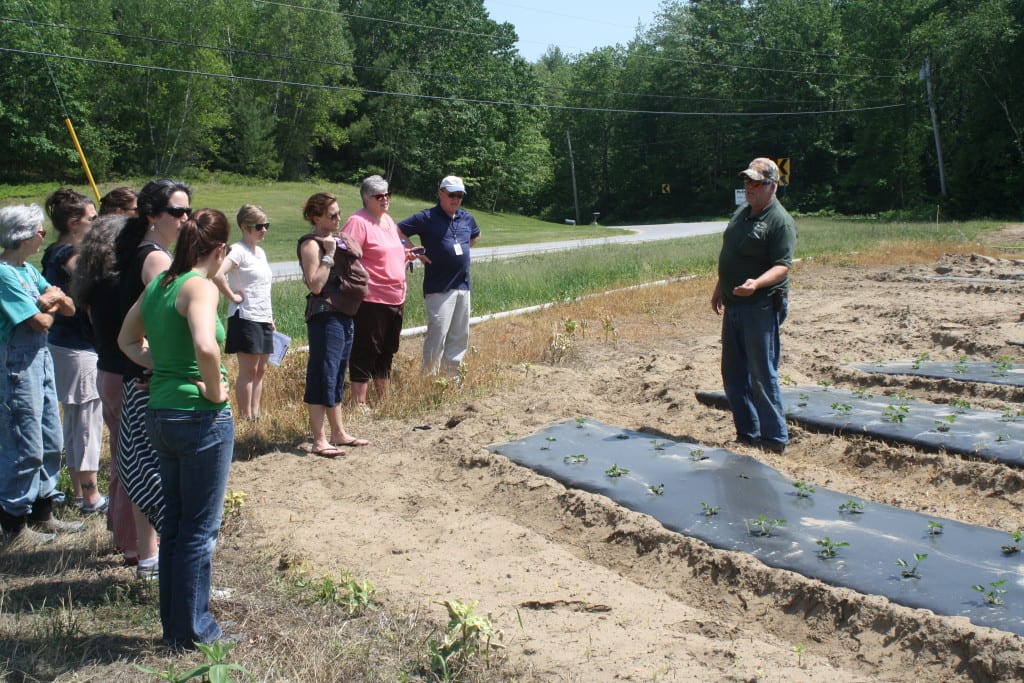
Rick Belanger explaining about growing sweet potatoes and using biodegradable plastic as weed-control.
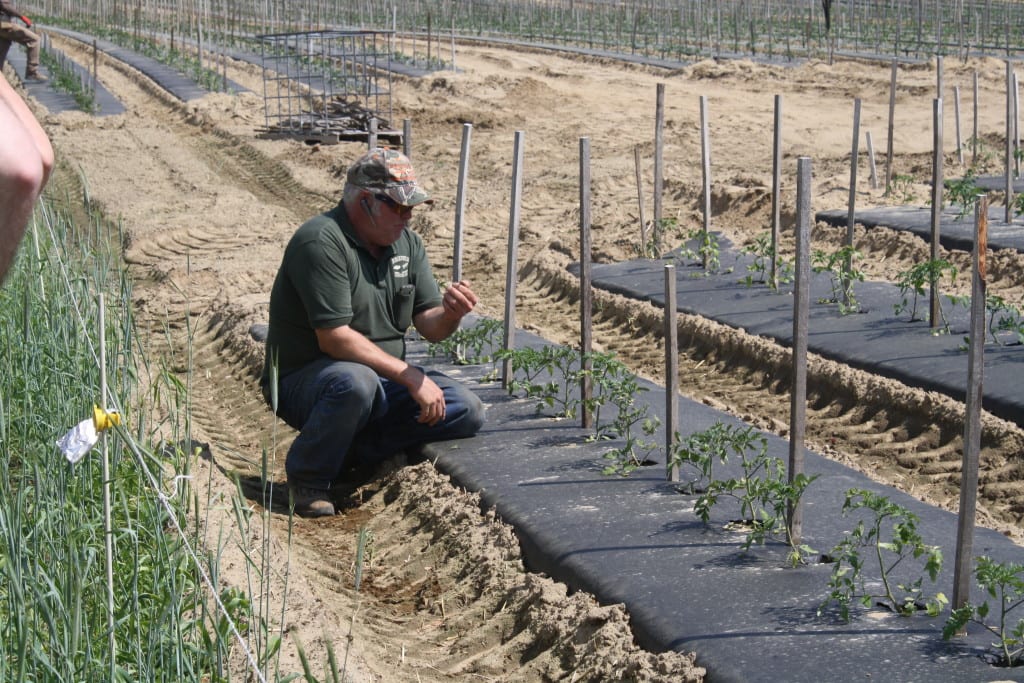
Rick explaining about the challenges of growing tomatoes. They require pruning and stringing for support, for starters. When the plant gets bigger, they’d ideally like to add a second string for support of the plant, but with so many other farm responsibilities, they often run out of time.
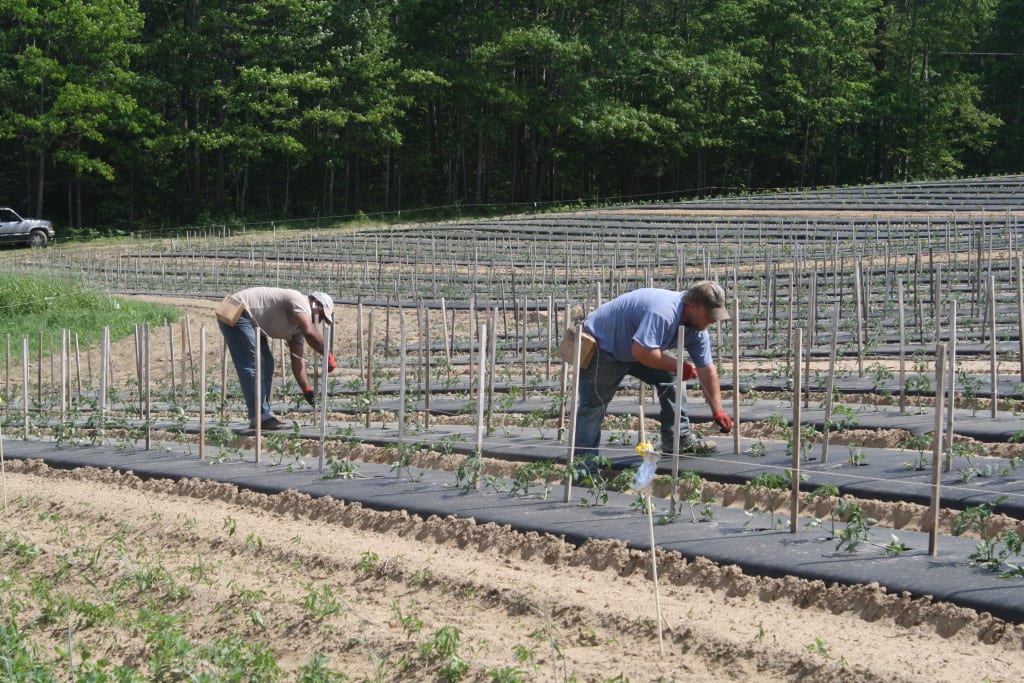
During the summer months, R. Belanger and Son’s employs 10-15 staff, which include family members, but the bulk are returning migrant farm workers from Jamaica. Rick explained that keeping up with immigration and labor law and regulations is one of the most challenging pieces of operating his farm business.
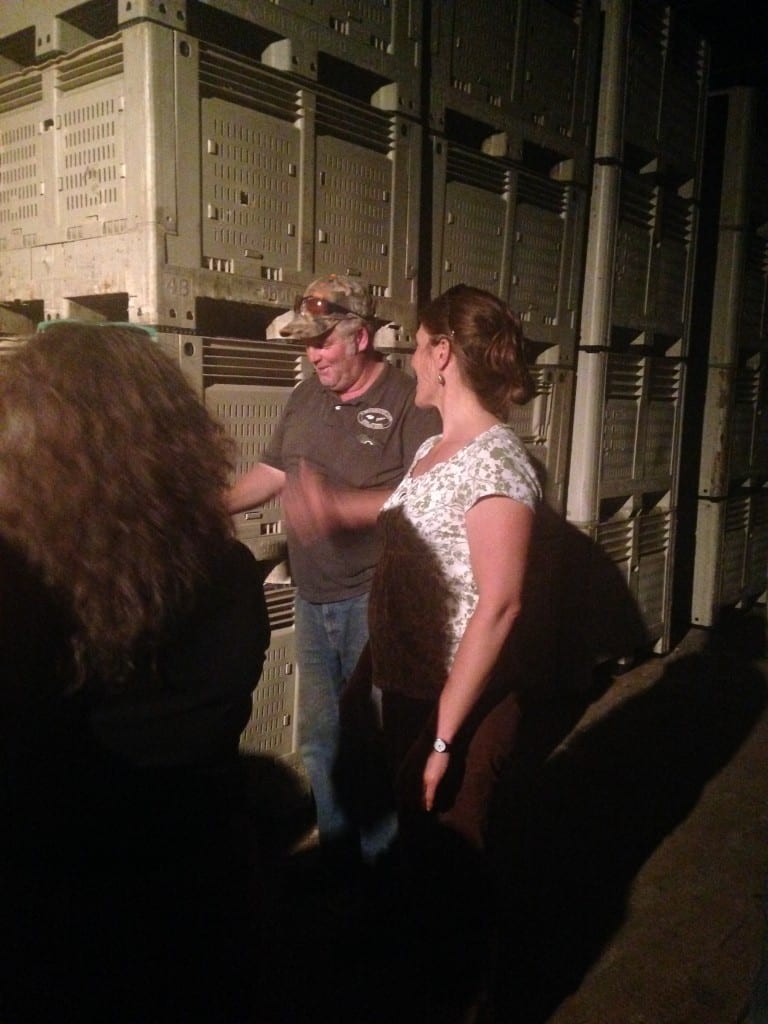
Rick shows us his impressive (and cool) underground storage facility to house potatoes, built in the 1980s. The mechanized equipment they use to sort and pack potatoes was purchased many years ago from a farm in Aroostook County who had outgrown it. Rick tells us that new computerized sorting equipment for potatoes costs upwards of $500,000 per piece – hardly affordable for most farmers.
